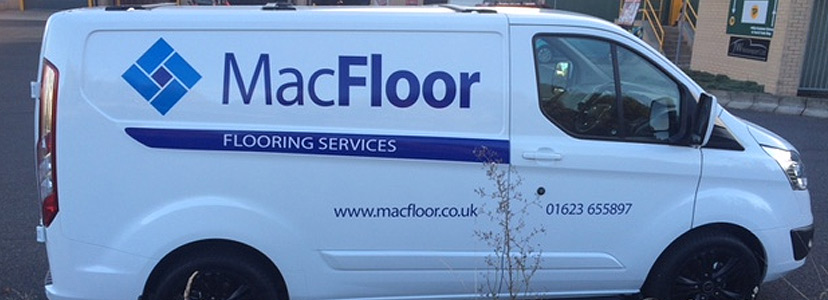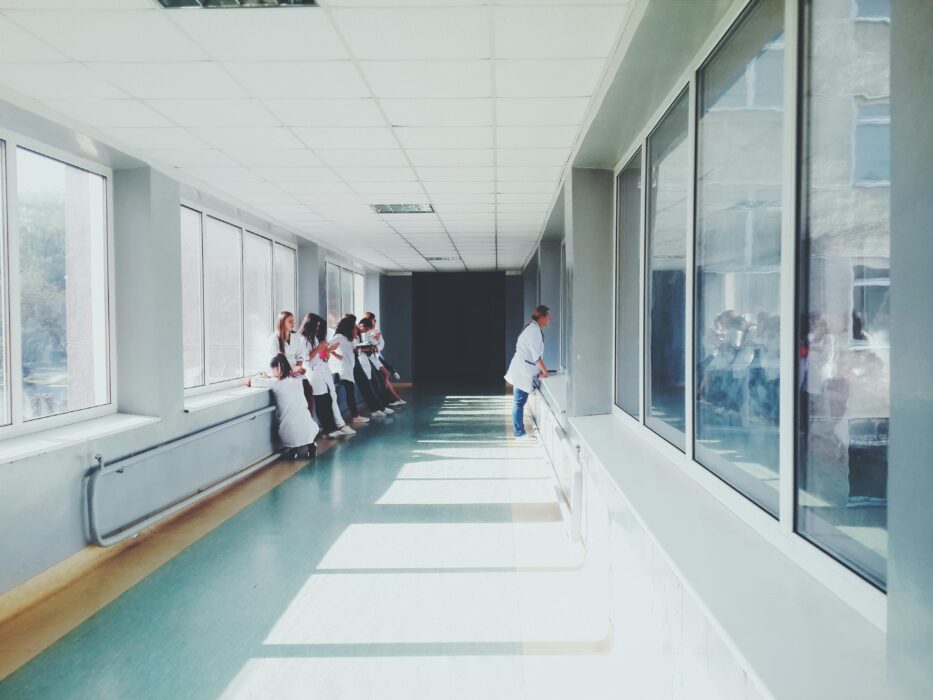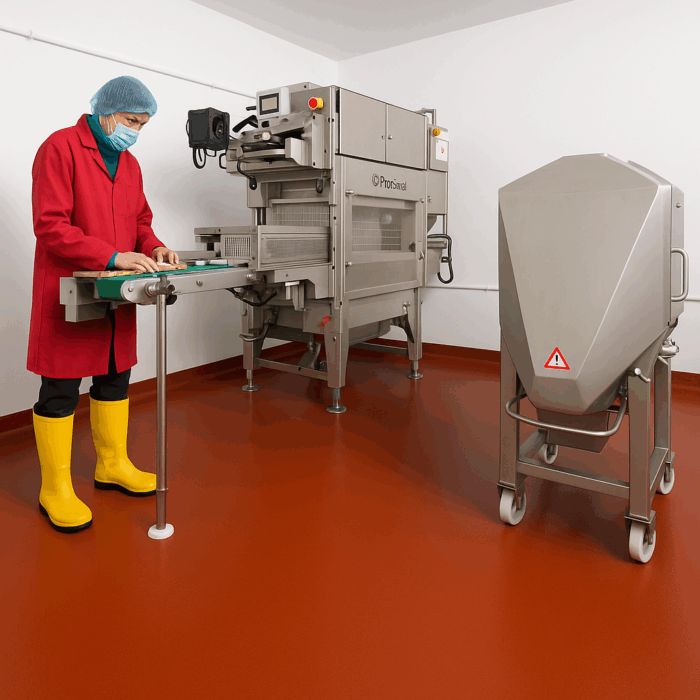Safety Flooring Explained: Where and Why It’s Required
When it comes to commercial and public spaces, safety should never be an afterthought – especially underfoot. Safety flooring is designed to reduce the risk of slips, trips, and falls, making it a crucial feature in many environments across the UK. But what exactly is safety flooring, where is it required, and how do you choose the right type?

In this post, we’ll break down the essentials of safety flooring and explain why it’s more than just a compliance checkbox – it’s a long-term investment in health, safety, and durability.
What Is Safety Flooring?
Safety flooring, often referred to as non-slip flooring or anti-slip flooring, is a type of specialist floor covering made with slip-resistant materials. These floors are engineered to offer extra grip, even when wet or contaminated, and are most commonly constructed using vinyl, rubber, or resin with embedded particles that enhance traction.
This type of flooring is widely used in areas where spills, moisture, or heavy footfall are common, helping to prevent accidents and meet UK health and safety regulations.
Where are Safety Floors Required?
Safety floors are required or recommended in a wide range of commercial and public settings. Here are some of the most common areas where safety flooring is essential:
🏥 Healthcare Facilities
Hospitals, clinics, and care homes require safety flooring to protect vulnerable patients and busy staff from slipping – especially in wet rooms, corridors, and treatment areas.
🍳 Commercial Kitchens
In professional kitchens, safety flooring must cope with grease, water, and food debris. Anti-slip vinyl flooring is a legal requirement in many food prep areas under UK hygiene and safety laws.
🚽 Toilets & Wet Rooms
Public toilets, changing rooms, and shower facilities are prone to water splashes, making non-slip flooring vital for preventing falls.
🏢 Industrial & Manufacturing Units
Factories, warehouses, and workshops often feature safety flooring in walkways and work zones to reduce injury risk in high-activity areas.
🏫 Schools & Nurseries
Children are particularly prone to slips and tumbles. Installing safety flooring in corridors, washrooms, and activity areas ensures a safer environment.
🛒 Retail & Hospitality
Customer-facing businesses like shops, restaurants, and leisure centres often install safety flooring in entryways, bar areas, and kitchens to protect both customers and staff.
The Legal Side: UK Regulations on Safety Floors
Under the Health and Safety at Work etc. Act 1974 and the Workplace (Health, Safety and Welfare) Regulations 1992, employers and building owners have a legal obligation to provide a safe environment – including floors that are suitable, maintained, and not slippery.
The HSE (Health and Safety Executive) also provides guidelines on preventing slips and trips in the workplace. Choosing the right safety flooring is part of meeting these standards, and failure to do so could result in fines or liability claims.
Key Features to Look for
When selecting flooring for your premises, consider the following features:
- Slip resistance rating (R10, R11, etc.)
- Water and chemical resistance
- Ease of cleaning and maintenance
- Hygienic properties (ideal for healthcare or food settings)
- Durability and load-bearing capacity
- Fire safety compliance
Trusted brands like Altro, Polyflor, and Gerflor offer a wide range of safety flooring options that meet these requirements and more.
Why Work with MacFloor?
At MacFloor, we specialise in the supply and installation of high-quality safety flooring across the East Midlands and beyond. Our expert team has years of experience working in healthcare, education, retail, and industrial settings, and we’re approved installers for leading safety flooring brands.
We offer:
- Free site surveys and professional advice
- Full compliance with UK safety standards
- Efficient installation with minimal disruption
- Tailored solutions to suit your space and budget
If you’re unsure which flooring is right for your premises, we’re here to help you make an informed, compliant, and long-lasting choice.
Safety flooring isn’t just about ticking a box – it’s about actively preventing accidents, safeguarding people, and ensuring your premises comply with the law. Whether you’re fitting out a kitchen, hospital, warehouse or public toilet, choosing the right flooring can make all the difference.
To discuss your project or request a free quote, get in touch with the team at MacFloor today.
Top Trends in Industrial Flooring for Food Facilities in 2025
The Role of Industrial Flooring in Food Production
In the UK’s food manufacturing sector, industrial flooring plays a pivotal role in meeting hygiene, safety, and operational efficiency standards. Traditionally utilitarian, flooring today is evolving – not just functionally, but also in terms of sustainability and visual appeal.

Seamless and Hygienic Floors
Perhaps the dominant trend is the shift toward seamless resin flooring. By avoiding grout and joints found in traditional tile or concrete, seamless resin – such as polyurethane (PU) screeds – eliminates areas where bacteria might harbour. These smooth, impervious surfaces simplify cleaning processes and reduce contamination risks – a game‑changer for food production and hygienic environments.
Chemical & Thermal Resilience
Food processing environments are exposed to rigorous cleaning agents and intense temperature shifts. Modern industrial flooring must therefore resist thermal shock and corrosive chemicals. Heavy‑duty polyurethane resin systems can endure heat up to 120 °C and aggressive sanitisers, ensuring longevity even under the harshest conditions.
Sustainable Flooring Solutions
Environmental credentials now matter. In response, resin flooring manufacturers are developing low‑VOC products and incorporating bio‑based resins sourced from renewables. The goal? To minimise installation impact, reduce waste over time, and align with ESG priorities. Durable systems that stand the test of time help avoid premature replacements and adverse environmental outcomes.
Speedy Installation & Reduced Downtime
Floor replacement often means lost production time – and revenue. To tackle this, rapid‑cure resin systems have been introduced. These harden quickly and allow phased installations, enabling sections of a facility to stay operational while new flooring is applied elsewhere . Faster turnaround means less disruption and on-going production continuity.
Safety Through Colour-Coding & Zoning
Another key development is the use of colour-coded resin floors to delineate zones: walkways, processing areas, spill zones, and emergency routes. This enhances compliance with UK Health & Safety Executive (HSE) guidelines and boosts visual management. Anti‑slip textures further reduce risks in wet or greasy areas, making industrial flooring not only hygienic, but safe for staff.
Aesthetic Finishes & Brand Identity
Even in industrial spaces, aesthetics are gaining traction. Food plants with visitor areas – such as open kitchens or tasting rooms – opt for glossy decorative resins, custom logos, and tailor‑made textures. These design elements reinforce brand identity and reflect investment in quality – without compromising on industrial-grade performance.
Challenges in Installation & Maintenance
Achieving peak performance from industrial flooring hinges on proper specification and installation. Substrate preparation, managing moisture levels, and controlling worksite conditions are crucial. Training personnel on correct cleaning and maintenance is vital to protect the integrity of the floor long term. Though initial costs may be higher, extended lifespan and reduced replacement needs typically offer better ROI.
The Future: Smart & Antimicrobial Floors
Looking forward, expect smart flooring with embedded sensors to monitor temperature, chemical exposure or wear – ideal for compliance and proactive maintenance. Antimicrobial resin additives will become more widespread. Additionally, Building Information Modelling (BIM) tools will help architects and contractors accurately specify flooring systems during planning. As UK regulations around pathogens such as listeria tighten, correct installation and monitoring of industrial flooring will be indispensable.
Conclusion: Industrial Flooring at the Forefront
In 2025, industrial flooring in the UK food sector is no longer only about strength. It must be:
- Hygienic – seamless and bacteria-resistant
- Resilient – chemical and thermal hard-wearing
- Sustainable – low-VOC, renewable-sourced, long-lasting
- Operational – fast-curing with minimal downtime
- Safe – colour-zoned, slip-resistant
- Aesthetic – visually aligned with brand presentation
- Future-ready – sensor-equipped and antimicrobial
Food processing businesses that invest in high-performance industrial flooring systems can expect cleaner facilities, stronger safety records, uninterrupted production, and greater sustainability throughout the building’s lifecycle.
At the heart of these trends lies the undeniable truth: well-chosen industrial flooring supports hygiene, boosts productivity, and signals a commitment to excellence. In an increasingly demanding regulatory and consumer landscape, that’s an advantage no food facility can afford to ignore.
Contact us today for more info on Industrial/Hygienic Flooring options


